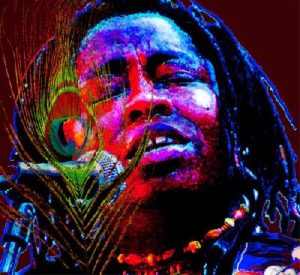On February 5, Black folk singer and activist Melanie DeMore visited the Lower School to share her art and activism with students in Grade 2. DeMore teaches the power of rhythm to connect people through singing and stick-pounding workshops across the country and is currently in residency at Follen Unitarian Universalist Church in Lexington.
We were thrilled that Follen Church’s music director, Vivian Montgomery, facilitated the opportunity for DeMore to bring her workshop on Body Percussion to our young artists, scholars, and leaders.
DeMore draws on a variety of influences in music, and also delivers workshops on Gullah Stick Pounding— a form of music that allowed African people forced into slavery on the coasts of South Carolina, Georgia, and Florida to resist slavery and preserve their culture. The Gullah people are a distinct cultural community that continue to live in the islands and rural plains of this southern coastal area. Even today, many people who live in the region who are of this cultural group speak an English-based creole language that has variations that blend with the African languages that their ancestors spoke.
In a documentary, DeMore explains some of the histories of how stick pounding developed in the Gullah community. In the Eighteenth Century, before the Gullah language developed, Africans forced into slavery in the region spoke many different languages, and plantation owners tried to keep people who spoke the same language apart to prevent communication. The Gullah people resisted, using rhythmic communication traditionally used to communicate across cultural groups. Slave owners tried to stop this communication too, by banning drums. Nevertheless, the Africans forced into slavery resisted, using tools and their bodies to communicate instead.
During the workshop, DeMore worked with students to use their whole body as an instrument with their voices, clapping, stomping, pounding, and slapping energy into their musical practice. The practices she shared are designed to warm participants up so they can access their inner and outer voices. Making music with the whole body allowed our young musicians to express their whole selves through embodied music-making.
While students did not get the chance to try Gullah Stick Pounding, the roots of body percussion and the more familiar practice of stepping are related to the communication used by the Gullah people and other communities in the African Diaspora who resisted and rebelled against slavery.
